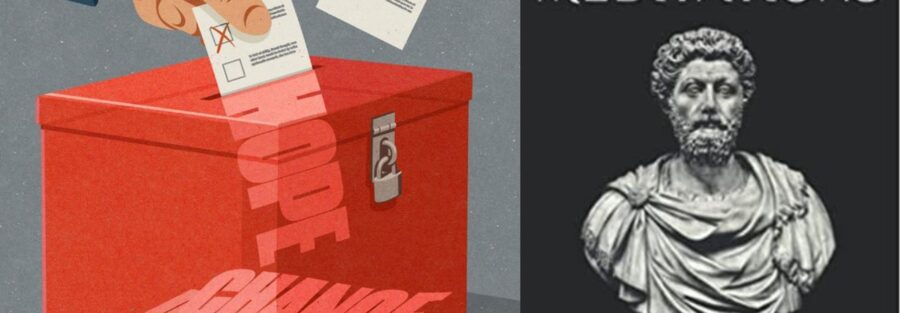During the challenging times of COVID-19, I found solace in what I love the most—reading. One book that left a profound impact on me was Meditations by Marcus Aurelius, the beloved Roman Emperor. But why did they adore him? He kept the empire together during the first pandemic that Rome faced, and had excellent survival strategies through the Parthian and Germanic wars too. Although I had chosen the book due to its title since I am a meditator since more than a decade, yet the book threw light on some other aspects as Stoicism and the significance he placed on logical thinking as compared to emotional thinking. I was much impressed by the idea that by following Stoic principles which make us resilient and virtuous, an individual like you and me can live with purpose and die with dignity. As a good human, I realized that this philosophy makes us better in every role we play in life—at a personal or professional level.
But why am I drawing inspiration from a Roman emperor today? It’s because Marcus Aurelius faced a dilemma remarkably similar to those many of us contesting the ISTD (Indian Society for Training and Development) elections are facing now. Towards the fag end of his reign, Aurelius had to decide—who should be my successor? Commodus, his son lacked leadership traits and virtues and hence raised concerns about effective governance in future. Going by merit, Aurelius had capable generals with the desired competencies, but he fell for dynastic succession which led to controversy, mismanagement, instability, and finally assassination of his son. So, he talked about logic, but fell for emotion while deciding whom to pass on the power and authority to, and the consequence was disastrous. His dilemma is a powerful lesson for us, especially in the context of elections where decisions must balance personal beliefs, practical considerations, and the greater good.
Now, I am contesting for National Council member elections from Jaipur chapter of ISTD. Why? I want to explore and evolve effective learning and development practices and take them to a higher level, as part of a premier Institution of HRD. So, what is the corelation with Marcus Aurelius? All of us who are contesting elections for various positions face similar dilemmas, I think.
Firstly, balancing personal beliefs and practical considerations is a challenge. For example, I may prefer an ally who has introduced me to the system or motivated me to utilize my experience and potential, but may want to go with someone with a broader appeal and wider reach, or vice versa. As a discerning and head strong woman, I should decide on sticking to my beliefs and value system which has got me this far in life, with some humble achievements. I remember, my father used to say—you may lose a battle, but never the war. So, winning and losing in an election is a comma, in the long sentence called life. And with this thought process, I feel liberated enough to decide and do what is right. What do you say?
Secondly, another dilemma faced is popularity versus competence. Should I align with those who are popular and will ensure a thumping majority of votes, or those who may be less popular, yet more likely to yield long-term benefits by fulfilling the objectives of the Institution? So, the candidate must spend adequate time weighing the pros and cons and I would surely go with competence—which is evident through performance in the past, and promise of the future. We often reiterate that anything that cannot be measured, cannot be managed. Hence, just evaluate the outcomes and it would be easy to decide. Beyond competence, we must not lose sight of ethics. It’s essential to support a results-driven team without resorting to Machiavellian tactics where ends justify means. Ethical responsibilities must be considered, balancing campaign promises with realistic deliverables.
Finally, we need to weigh short-term gains against long-term implications. Similar to the risk management principles I studied as a Finance major, where higher risks are balanced by higher returns, election contestants face conflicts between immediate success and the long-term welfare of the fraternity. Whether we win or lose, our commitment to contribute meaningfully remains. As educators, trainers, and HR professionals, we should strive to make a substantial impact, regardless of support or opposition.
Elections determine who comes to power, but they do not determine how that power is used. As we approach the voting phase for the ISTD elections, I urge you to cast your vote thoughtfully. Choose candidates who will use their position to serve ethically and effectively, with a vision for long-term benefits rather than short-term gains.
Your vote is not just a choice—it’s a decision that shapes the future of our fraternity. Let’s ensure that it reflects our collective commitment to excellence, integrity, and growth.



